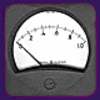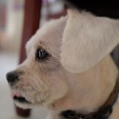New to film - question about scanned image quality
-
Recently Browsing 0 members
- No registered users viewing this page.
-
Similar Content
-
- 17 replies
- 1,831 views
-
- 69 replies
- 8,455 views
-
- 2 replies
- 428 views
-
- 12 replies
- 1,324 views
-
- 44 replies
- 3,716 views
-





Recommended Posts
Join the conversation
You can post now and register later. If you have an account, sign in now to post with your account.
Note: Your post will require moderator approval before it will be visible.